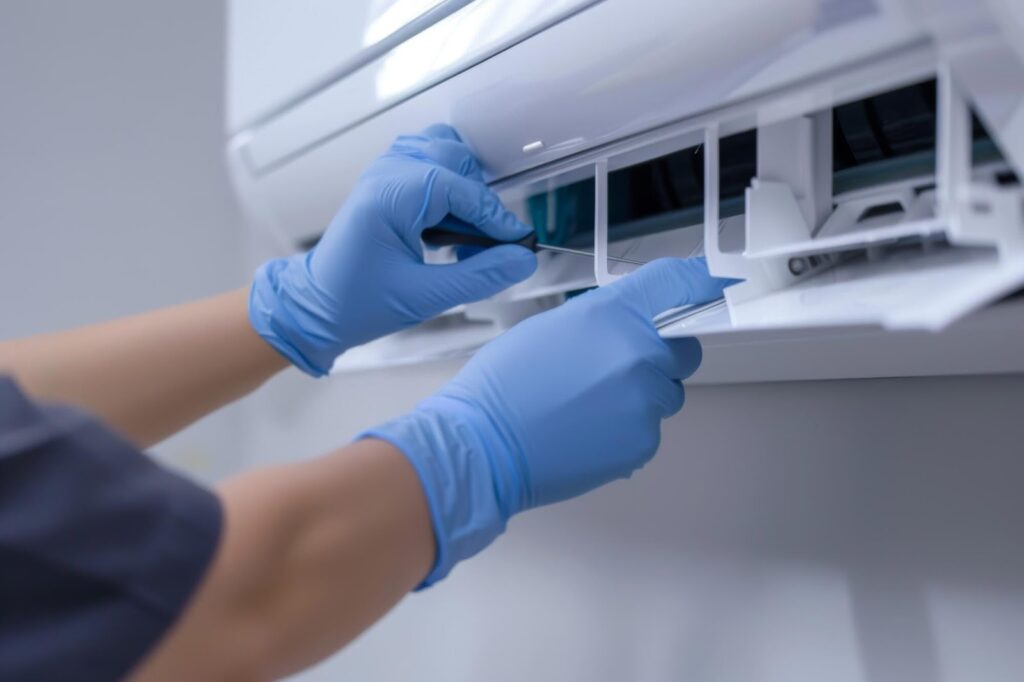In today’s fast-evolving world, having a specialized skill set can open doors to diverse career opportunities. If you’ve considered venturing into the HVAC (Heating, Ventilation, and Air Conditioning) field, you’re in for a rewarding experience. HVAC training equips you with the technical know-how needed for a successful career and empowers you with various versatile skills highly in demand across multiple industries.
This blog post will explore the eight essential skills you’ll acquire through comprehensive HVAC training. This guide provides valuable insights into what HVAC training offers. From technical expertise to problem-solving abilities, you’ll discover how these skills can shape your career trajectory and enhance your professional development. Buckle up as we take you on a detailed exploration of these indispensable skills.
Mastering the Art of Installation and Repair
One of the foundational skills you’ll gain from HVAC training is the ability to install and repair heating, ventilation, and air conditioning systems. HVAC systems and understand each one’s unique installation process. This skill involves technical precision and the ability to follow safety protocols meticulously. During your training, you’ll practice working with various systems, which will build your confidence and competence in real-world scenarios.
Say you want to learn how to make common duct transitions, elbows, offsets, square to rounds, wyes, and more. In this case, you can enroll in a Metal Duct Design training to enhance your capabilities. You’ll learn to use specialized tools and equipment, ensuring each installation is done efficiently and effectively. Additionally, you’ll develop an eye for detail. These hands-on experiences are invaluable in the field, where you’ll be expected to troubleshoot and resolve problems swiftly. Mastering installation and repair will make you an asset to any employer and provide a solid foundation for advancing your HVAC career.
Developing Diagnostic Capabilities
Another critical skill you’ll acquire during HVAC training is diagnostic capability. This involves determining the root cause of HVAC system malfunctions and identifying the best action to address them. Diagnostic skills are crucial in ensuring that systems run efficiently, minimizing downtime, and preventing costly repairs. You’ll learn to interpret data from these tools to make better decisions about repairs or adjustments needed. This analytical approach is essential for accurately diagnosing problems and ensuring long-term system reliability. Honing your diagnostic skills will enhance your ability to deliver high-quality service and build client trust.
Enhancing Customer Service Excellence
HVAC professionals often interact directly with customers, making customer service skills vital to your training. Effective communication, empathy, and problem-solving are all components of excellent customer service that you’ll develop during your HVAC course. You’ll learn how to explain complex technical issues to customers in an understandable way, helping them make informed decisions about their HVAC systems. Training will also teach you how to tactfully handle customer concerns and complaints, turning potential conflicts into opportunities to build trust and loyalty. Investing in customer service skills benefits your clients and enhances your reputation as a professional.
Navigating Safety Protocols with Precision
Safety is paramount in the HVAC field, and understanding safety protocols is a non-negotiable part of your training. You’ll learn to identify potential hazards and implement safety measures to protect yourself, your colleagues, and your clients. This knowledge ensures that you can perform your duties without compromising safety standards.
Training will cover topics such as handling refrigerants safely, operating heavy equipment, and maintaining compliance with regulations. You’ll also learn to conduct risk assessments and develop emergency response plans for unforeseen situations. The emphasis on safety during your training prepares you to work confidently in various environments. It instills a sense of responsibility and professionalism essential for building a successful career in the HVAC industry, where adherence to safety standards is critical.
Understanding Energy Efficiency and Sustainability
With growing awareness about environmental impact, energy efficiency, and sustainability have become integral to the HVAC industry. Your training will include lessons on designing and maintaining systems that optimize energy use and minimize environmental footprint. This skill is increasingly sought after as more businesses and homeowners prioritize sustainable practices.
You’ll learn about modern technology and system efficiency strategies, such as smart thermostats and energy-efficient components.
Understanding these concepts will enable you to advise clients on the best solutions for their needs, balancing performance with sustainability. Developing expertise in energy efficiency and sustainability positions you as a forward-thinking professional. You’ll be equipped to contribute to reducing carbon emissions and promoting environmental responsibility, enhancing your credibility and appeal to eco-conscious clients.
Acquiring Proficiency in Digital Tools and Technologies
During your training, you’ll become familiar with the latest software and applications used for system design, diagnostics, and maintenance. Proficiency in digital tools is essential for staying competitive in the modern workforce. You’ll learn to use computer-aided design (CAD) software to create and analyze system layouts, ensuring optimal performance and efficiency. Additionally, you’ll gain experience with digital diagnostic equipment and mobile apps that streamline workflow and communication. Keeping up with technological trends will enhance your ability to deliver cutting-edge solutions to clients. Mastery of digital tools allows you to work more efficiently, adapt to advancements, and remain relevant in a constantly innovating industry.
Building Strong Problem-Solving Skills
Problem-solving is at the core of an HVAC professional’s responsibilities. Training will challenge you to think critically and creatively when addressing issues in HVAC systems. You’ll learn to approach problems methodically, analyze the situation, and develop practical solutions.
Through practical exercises and simulations, you’ll refine your ability to anticipate potential challenges and respond proactively. This skill ensures you can handle unexpected complications with confidence and competence, minimizing client disruption. Developing strong problem-solving skills distinguishes you as a reliable and resourceful professional. It empowers you to overcome obstacles and deliver exceptional service, contributing to your success and advancement in the HVAC field.
Cultivating Effective Communication Skills
Effective communication is essential for collaboration and client interaction in the HVAC industry. Training will emphasize the importance of clear and concise communication, both verbally and in writing. You’ll learn to convey technical information in a way that’s accessible to clients and colleagues alike.
Role-play and group activities will provide opportunities to practice communication in various scenarios, from explaining system functions to negotiating project details. You’ll also learn the value of active listening, ensuring that you understand clients’ needs and expectations. Strong communication skills contribute to successful teamwork and positive client relationships. They enhance your ability to collaborate effectively with colleagues and deliver exceptional customer experiences, which is critical to thriving in the HVAC industry.
Completing an HVAC training course equips you with a diverse set of skills that go beyond technical expertise. From mastering installation and repair to enhancing customer service excellence, these skills prepare you for a successful career in the HVAC industry and beyond. They empower you to deliver exceptional service, build strong client relationships, and confidently adapt to industry advancements.
If you’re ready to take the next step in your career and explore the opportunities that HVAC training offers, consider enrolling in a course today. With the skills and knowledge you’ll acquire, you’ll be well-prepared to thrive in a dynamic and rewarding field. Explore further resources and connect with industry professionals to continue your learning and stay ahead in the HVAC industry.






